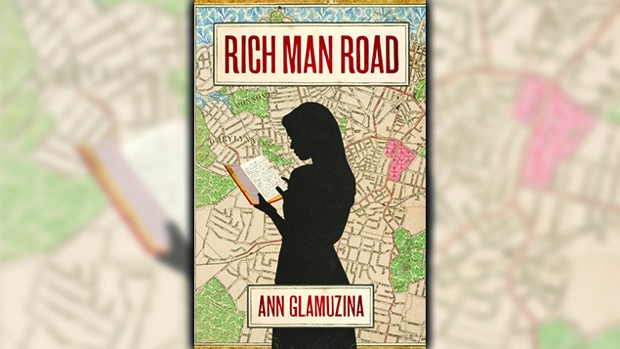Stephanie Jones: Book Review - Rich Man Road by Ann Glamuzina
- Publish Date
- Friday, 27 March 2015, 11:19AM

- Author
- By Stephanie Jones
Rich Man Road, the deeply tender debut novel by Auckland writer Ann Glamuzina, tells of the girlhoods of two women who meet as nuns in the Carmelite order. The latter detail is all but insignificant in the wider context of the novel, which uses the connection largely as a pretext to introduce Olga, from whose perspective the story is told and whose journal the younger Pualele discovers and reads after her friend’s death. Through these dual tales of migration, displacement and uncomfortable assimilation into an alien culture, Glamuzina honours her own family history while bearing witness to the immigrant experience and some specific burdens of womanhood.
Olga’s story begins in a small Dalmatian village in the midst of World War II, where the “houses were like old men who had shrunk with age, their bones warping until there wasn’t a straight line to be seen.” The setting, brought to vivid, heat-seared life by Glamuzina, is literally in her DNA; her grandmother hailed from the region, and by escaping the German occupation unwittingly inspired the fictionalized flight of Olga and her family from their home to New Zealand via the British-run refugee camps in El Shatt, Egypt.
The uprooting of Olga from the safe and familiar is mirrored three decades later in the South Pacific. Nine-year-old Pualele, so ensconced in her own small village that she has never travelled as far as Apia, departs for New Zealand with her father and brother but without her mother. Her aunt and uncle have a rented home on Grey Lynn’s Richmond Road (“Rich Man Road” to the little girl’s ears), and the palagi world promises much – but Pualele’s burden is great, her yearning for her homeland and mother unquenchable in a new world whose rules are not spelled out.
Like Olga, she is utterly out of her element, first perplexed and then agonized by the casual ignorance of adults and children alike. The nun who heads her classroom repeatedly mispronounces her name before announcing that she will henceforth be called Pauline, and it occurs to the child that the ostensible socioeconomic elevation arising from the move to Auckland is really deprivation: “the joy of exploring has been taken away”, for what is there to explore or forage for when you are surrounded by shops and neat packages?
Beyond the migrant stories, Rich Man Road is at its heart about the experience of women – those who find each other in the course of life and others from whom age and the course of life separate us. The author deftly parses the complexity of feeling of young girls towards their mothers; while Pualele dreams of reunion, Olga is simultaneously frustrated and fascinated by her passionate Communist mother’s acceptance of life with an absentee husband, and finds herself “living in reaction to her [mother’s] indifference.” Both pay a price for their lack of maternal guidance and protection.
The theme of religion in Rich Man Road, if little explored, is consonant with the characters. It’s no surprise that each woman’s destination is the same place of refuge and retreat. Olga confesses that even in childhood she felt a kind of fraud, a reluctant churchgoer who questioned too much to be a person of faith. Glamuzina brings her story full circle with clarity, compassion and the knowledge of an insider, revealing the scars left by fractured childhoods and an unsympathetic new world.
Take your Radio, Podcasts and Music with you

